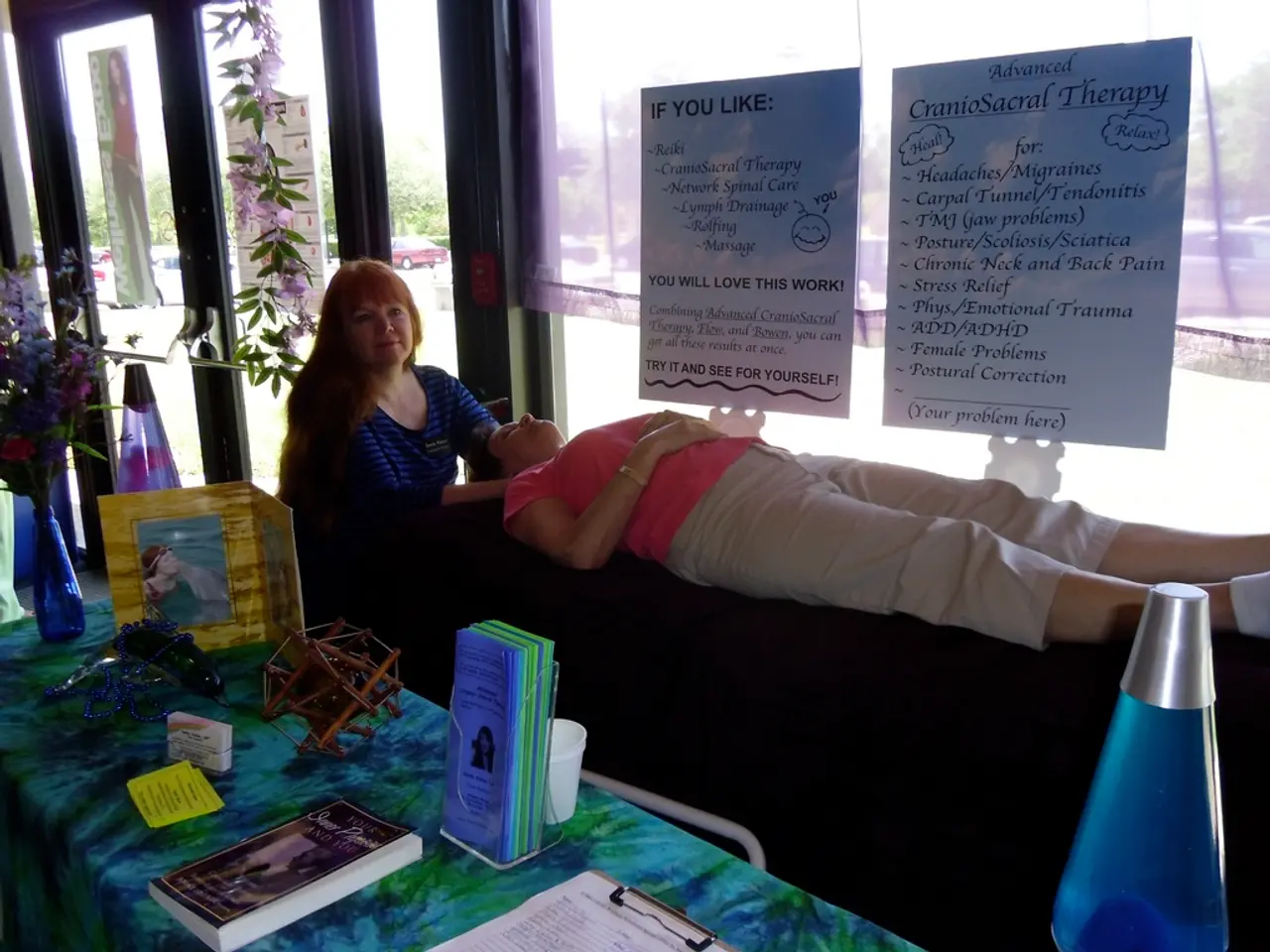Social Media Mental Health Dilemma: The Unhealthy Impact of Misinformation on Users' Psychological Well-being
In the digital age, mental health conversations have taken centre stage on social media platforms like TikTok and Instagram. While these platforms can be powerful tools in fighting mental health stigma, they also carry a responsibility to prevent the spread of misinformation.
Mental health memes, designed to provide emotional relief and connection, can be a double-edged sword. On one hand, they offer a safe space for individuals, particularly younger users, to express difficult emotions and find comfort in shared experiences. Humour, a common feature in memes, can act as a coping mechanism, reducing anxiety and stress[1][3].
However, the oversimplification of mental health issues can have detrimental effects. Memes can trivialise serious mental health disorders, promoting misinformed beliefs and potentially exacerbating symptoms for vulnerable individuals[2]. This misinformation can lead to a delayed or missed diagnosis and treatment, a concerning statistic as over half of all viral mental health videos on TikTok contain inaccurate information[5].
The rise of self-diagnosis, particularly among Generation Z, is another concerning trend. With 30% of Gen Zers indicating they have self-diagnosed mental health conditions in recent surveys, seeking professional help becomes even more crucial[4]. Effective, evidence-informed treatment can only be provided by trained mental health professionals in safe, confidential environments.
Social media platforms play a significant role in shaping public perception of mental health. It is essential that they take proactive measures to combat misinformation and promote accurate, evidence-based mental health content. Content creators and influencers also have an obligation to share accurate information or leave it to the experts.
Community-wide psychoeducation programs, such as Mental Health First Aid training, can help raise mental health literacy and decrease stigma. By fostering a true understanding and support-seeking, these programs can contribute to a more informed and empathetic online community.
Mental health conditions are legitimate, serious medical issues that should be treated with the same respect and professional attention as any other medical condition. Early professional intervention can stem the progression of mental health issues, enhancing quality of life. Alterations in neurotransmitter activity in the brain's frontal lobe, hippocampus, and limbic system are implicated in symptoms of depression and anxiety[6].
In conclusion, mental health memes can offer a sense of community and emotional relief, but they also risk trivializing serious mental health issues and promoting misinformation if not handled thoughtfully. As we continue to navigate the digital landscape, it is crucial that we prioritise accurate, evidence-based mental health education and professional intervention to support those struggling with mental health issues.
References: [1] https://www.ncbi.nlm.nih.gov/pmc/articles/PMC7556146/ [2] https://www.ncbi.nlm.nih.gov/pmc/articles/PMC6986627/ [3] https://www.ncbi.nlm.nih.gov/pmc/articles/PMC6777200/ [4] https://www.ncbi.nlm.nih.gov/pmc/articles/PMC6593532/ [5] https://www.ncbi.nlm.nih.gov/pmc/articles/PMC7607119/ [6] https://www.ncbi.nlm.nih.gov/books/NBK207895/
- Mental health awareness and education can complement mental health campaigns on social media platforms, ensuring they promote accurate, evidence-based information about serious mental health disorders, rather than trivializing them.
- Collaboration between mental health professionals and social media platforms can contribute to the health-and-wellness of their users by providing access to science-backed mental health resources and fostering an environment of mental health awareness and support.
- With the increasing importance of mental health in the digital age, mental health education should be a key component of comprehensive mental health programs, empowering individuals with the knowledge necessary to seek professional help when needed and promote a more empathetic and informed mental health community.




